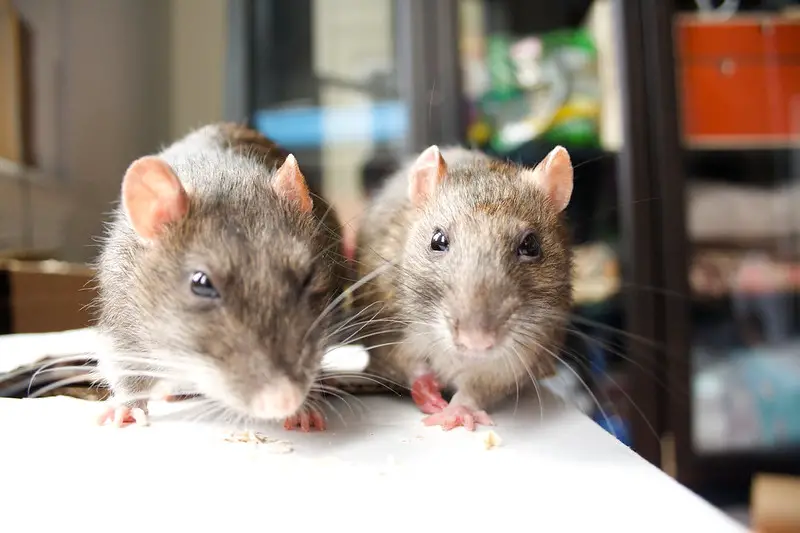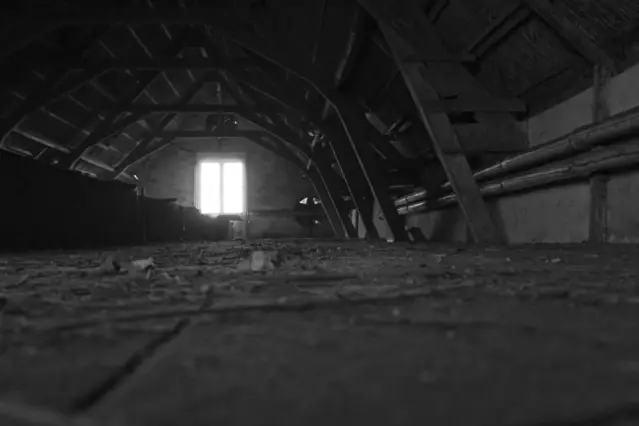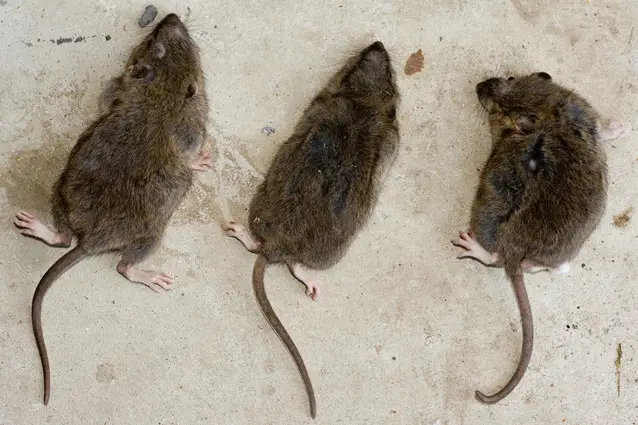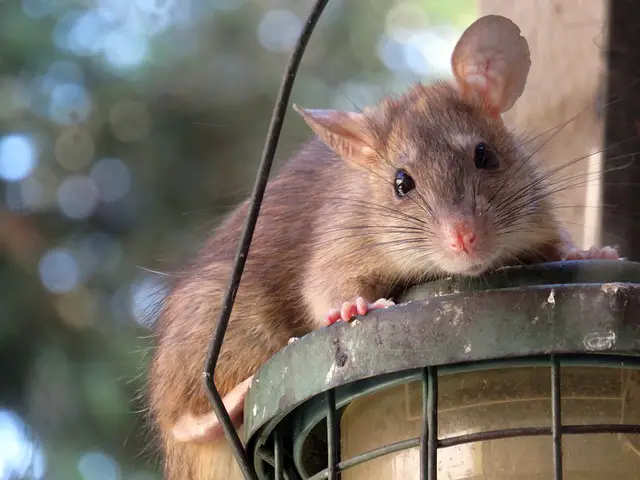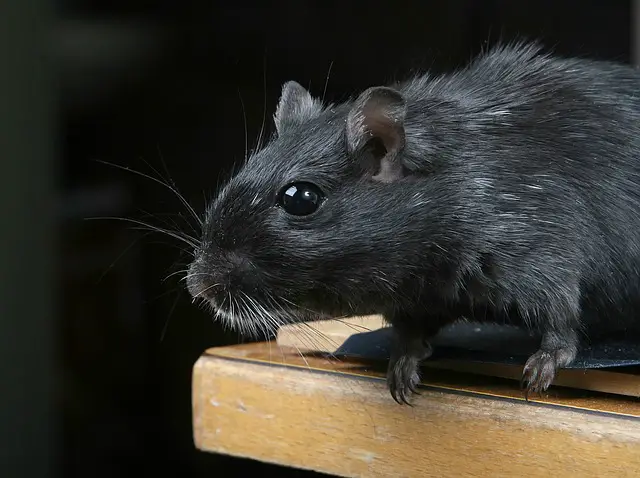So, you wake up in the middle of the night to a painful bite. You are still half asleep and not sure what happened. But now you are looking at the site of the bite. Could it be a rat bite?
Do rats bite sleeping humans?
Rats can bite sleeping humans. While it’s technically possible, you don’t want to wake up to this nightmare scenario.
Wild rats are communal pests that have discovered great advantages in living in populated areas, around human beings. Rats thrive in sewers, family dwellings, apartment complexes, farms, , restaurants, garbage dumps, etc.
One of the main fears with a rat infestation is a fear of being bitten. Wild rats rarely bite people. Rat bite incidents are believed to be rare, but actual numbers are not available because rat bites are under-reported.
It is estimated that only 10% of rat-bite victims seek medical help. Unfortunately, only a small percentage of rat bites are reported to city authorities.
While rats can bite humans of any age, most rat-bite victims seem to be kids. An even scarier fact is rat bites occur at night or while the victim is asleep. Rats will generally bite uncovered body parts while you sleep, like feet, arms, hands, and legs.
Related post: Rat Infestation Treatment
Do rats bite humans in their sleep?
Rats bite humans in their sleep on rare occasions. What most people mistake for a rate bite isn’t really a rat bite. Rats might crawl all over you while you’re sleeping, but a bite is unlikely.
People can mistake the claws and feelers for a rat bite. Some people confuse this with a rat bite. So, it’s clear that you don’t really need to worry about rat bites in your home.
Some people indeed claim to have been bitten by rats, but there is little evidence.
So what is the truth? Do rats bite you while you’re sleeping? The answer is that rats can bite you, but they don’t really have a reason to do so. In other words, just because they can, it doesn’t mean rats will bite humans.
While rats are constantly searching for food, they aren’t looking for people to bite.
What happens if a rat bites you?
Common symptoms are swelling around the bite, pain, and redness when a rat bites you. In case of secondary infection, a weeping, pus-filled wound is possible.
Other rat-bite symptoms may include those associated with bacterial infections known as streptobacillary rat-bite fever and rat-bite fever.
Headache, muscle ache, vomiting, joint pain, rash and fever are common symptoms of streptobacillary rat-bite fever. Symptoms usually occur three to ten days after an infected rat bites a person.
Symptoms of rat-bite fever vary but are typically fever, an ulcer at the bite site, rash, swelling, and swollen lymph nodes. These rat-bite symptoms may occur one to three weeks after being bitten by an infected rat.
Rats and mice are rarely infected with rabies, and their bites are not known to transmit this disease to humans.
Seek professional medical advice or attention anytime a rat or other pest bites you.
Will a rat jump on my bed?
A rat may jump on your bed. But rats rarely end up in the bed of humans. Rats prefer to follow well-defined pathways or runways that run alongside walls or behind objects. So, rats are unlikely to jump on your bed.
Rats will move behind objects and get as close to the food source as possible. So, rats are unlikely visitors unless you store food in your bed.
In addition to food, rats might use your bed to get to the water. They would only use your bed to get from one point to another. If they can get more quickly to food, shelter or water through your bed, they will jump on your bed without hesitation.
To be honest, rats are more attracted to the kitchen than your bed. They look for food and shelter. And your bed isn’t the ideal hiding place for rats.
If rats get into your bedroom, these nocturnal pests can climb on your bed while you’re peacefully sleeping. Of course, nobody likes to get disturbed in sleep, especially not by a rat.
Will a rat attack a human being?
Rats rarely attack human beings. But rats, like any animals, will attack if cornered. Keep in mind that most rats will flee if given the opportunity. But if they can’t get away and feel threatened or cornered, they might bite.
It should be noted that most rats do not just randomly attack humans. Young children, infants, the bed-ridden or the homeless are at most risk of living in a high rat infestation area.
Rat bites are surprisingly mild. They require only a thorough cleaning and bandage. It’s good news that the infection rate of rat bites is very low, only about 2 percent. And hospital stays are seldom required.
In the 2 percent of critical bites, the rat’s saliva can carry diseases like Hantavirus and leptospirosis. In unusual cases, rat-bite victims have contracted rat-bite fever.
But people bitten by other rodents are also susceptible to tetanus infections, rabies, or rat pox. Unfortunately, health officials report less than half of these infectious bites.
If you are afraid of rat bites and live in an area with a high incidence of rat infestations, it’s best to practice prevention.
You can start by checking your home’s exterior. Fill or cover all rat holes. Rat holes are tiny, often the size of a quarter. You can easily recognize rat holes by the dark greasy stains.
The stains are leftover time as rats drag their dirty body through. Another tell-tale sign of rats is feces scattered around the rat hole. Rat feces looks like dark-colored (brown or black) grains of rice.
If you have seen a rat in or around your home, take measures to deter these nasty pests. The best approach to keeping rats out is not to leave out any food.
That includes fruit in a bowl on your counter, pet bowls, loaves of bread, exposed garbage, or leftovers. Keep all bagged or boxed food items like potatoes, rice, and nuts in a closable storage container.
Pick up dog feces in your yard and keep litter boxes clean. Do not purchase cleansers or soaps that smell like food. Rats will eat your soap.
Keep your yard free of rodent attractants. Ponds, bird feeders, and birdbaths are favorite spots for rats, mice and other pests. Clean up any piles of brush and trash they can hide in.
Keep garbage in cans with secure lids. If you happen to be bitten, seek medical attention, and report all bites to the proper authorities.
Do house rats bite humans?
House rats can bite humans, but it’s rare.
